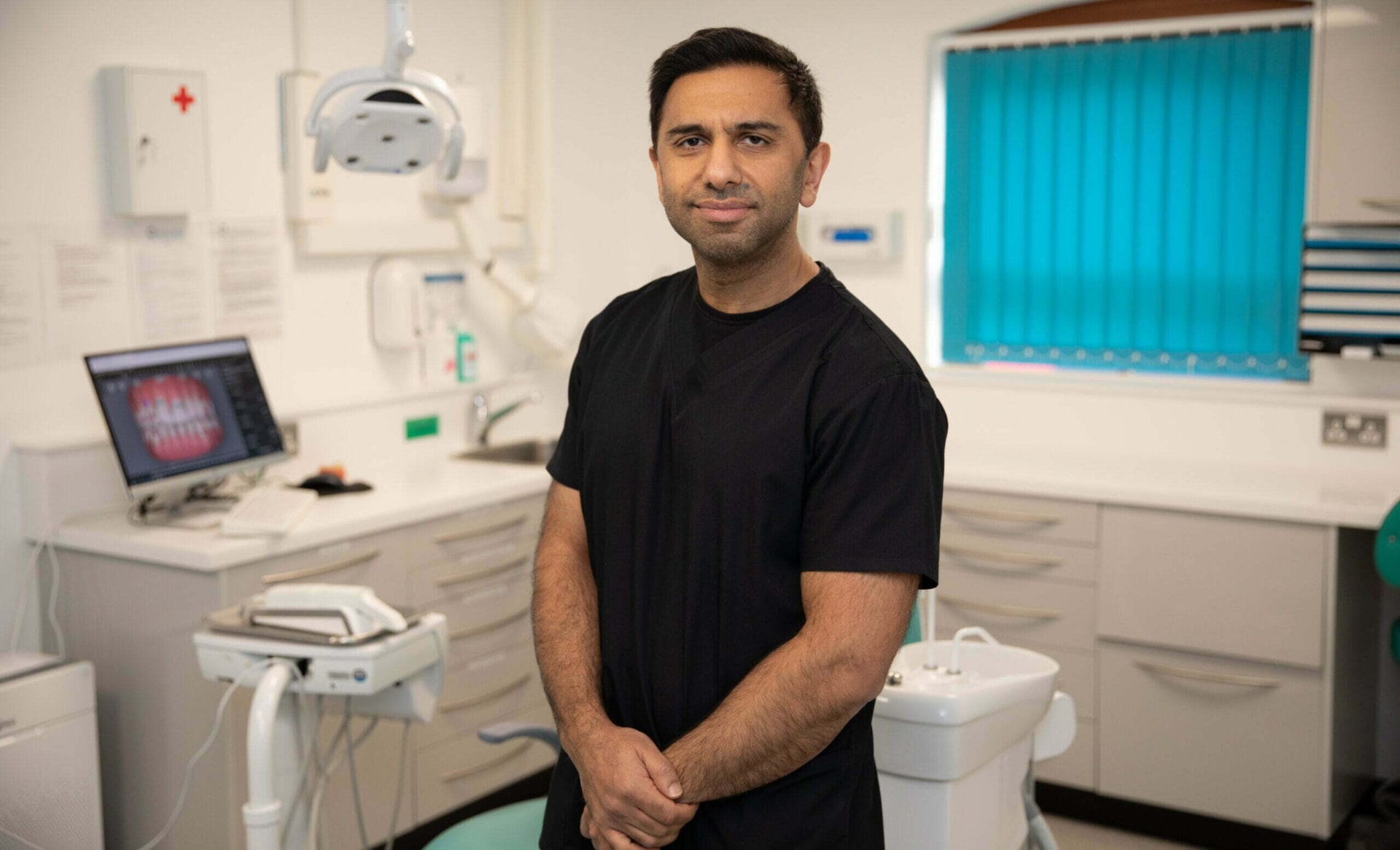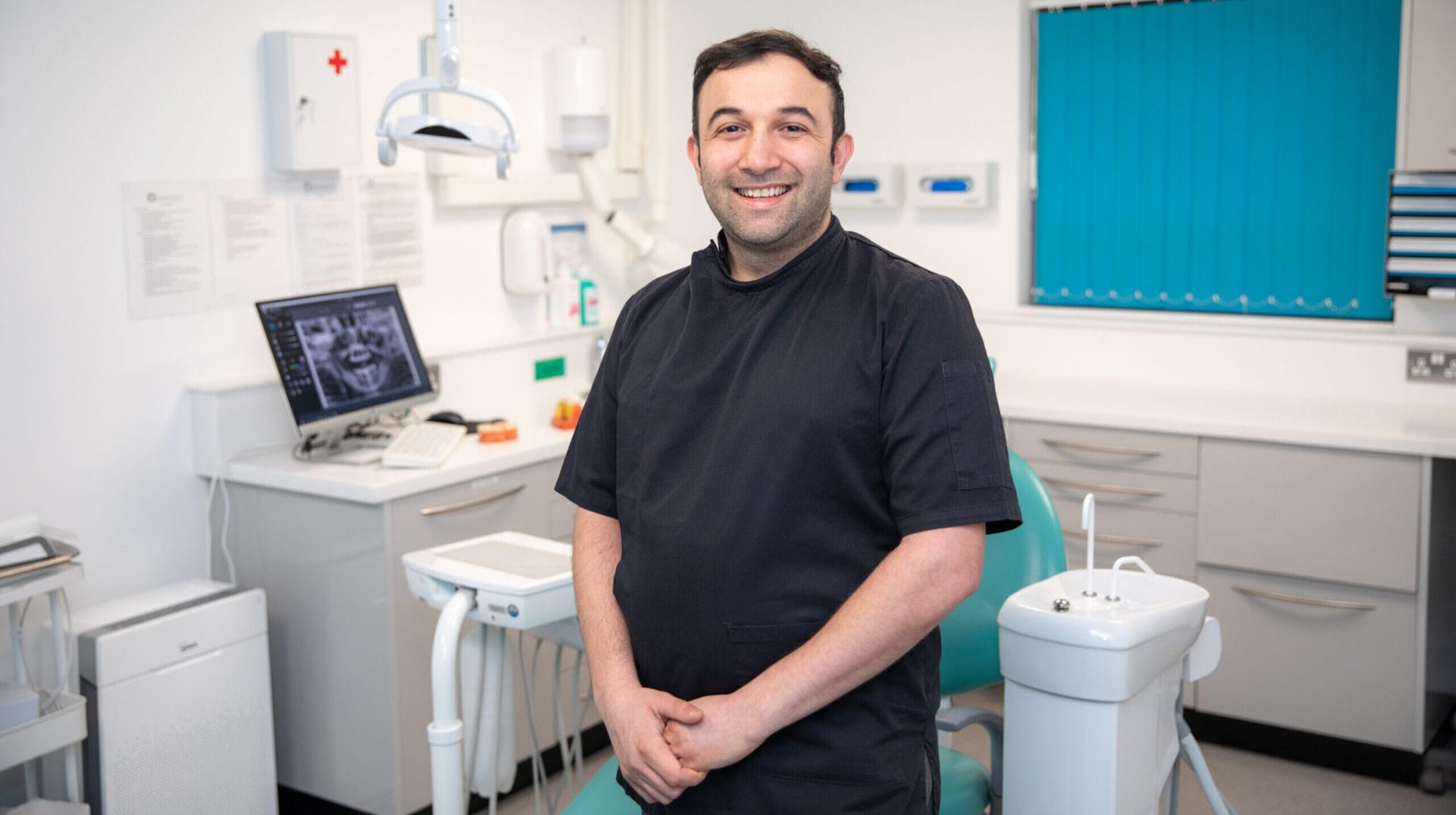
Smiling—it’s the universal language of joy, confidence, and connection. But what if your smile doesn’t reflect how you feel inside because of minor imperfections? Enter the world of composite bonding resin, a game-changer in cosmetic dentistry that’s turning frowns upside down without the need for extensive dental work.
If you’ve ever found yourself covering your mouth when you laugh or hesitating to smile in photos, it’s time to discover how this simple yet revolutionary procedure can unveil the radiant, confident smile you deserve.
Whether it’s gaps between your teeth, minor chips, or discolouration that’s holding you back, composite bonding offers a quick, affordable, and minimally invasive solution. So, are you ready to let your smile shine? Dive into the details with us and discover if composite bonding resin is the key to unlocking your best smile.
- What is dental bonding?
- When is dental bonding recommended?
- Dental bonding vs veneers: What’s the difference?
- What happens during dental bonding?
- Advantages of composite bonding
- Disadvantages of composite bonding
- What is the recovery time after dental bonding?
- How long does dental bonding last?
- Is dental bonding permanent?
What is dental bonding?
Dental bonding is a cosmetic dentistry procedure where a tooth-coloured composite resin is applied to your natural teeth. This bonding material is sculpted into the perfect shape, hardened with ultraviolet light, and polished to blend seamlessly with your surrounding healthy teeth. Essentially, you can give your teeth a mini makeover without the commitment of more invasive procedures.
When is dental bonding recommended?
Bonding is a fantastic option for fixing minor damage like a broken tooth or surface repairs, closing gaps between teeth, and improving your smile’s overall appearance. It’s a practical alternative for those looking to correct imperfections without the need for extensive dental work. If you’ve got regular teeth that need a little love, bonding could be your go-to.
Dental bonding vs veneers: What’s the difference?
While both dental bonding and composite veneers offer cosmetic solutions, they cater to different needs. Veneers are thin shells that cover the front surface of the tooth, requiring more preparation of the tooth enamel. On the other hand, bonding is less extensive and is applied directly to your tooth. This means it needs minimal prep work, making it a popular cosmetic alternative.
What happens during dental bonding?
During your bonding appointment, your dentist will use a shade guide to match the resin to your tooth’s natural colour. Next, the surface is roughened, and a conditioning liquid is applied to help the bonding agent stick. The tooth-coloured composite resin is then put on the tooth, moulded, and hardened with a UV light. Finally, it’s shaped and polished to match the rest of your smile.
Advantages of composite bonding
Composite bonding comes with a full range of benefits, including:
- It’s generally less expensive than other cosmetic dental procedures like veneers or crowns.
- Most bonding procedures can be completed in just one visit to the dentist.
- Unlike veneers or crowns, bonding requires minimal to no removal of the existing tooth enamel.
- Suitable for various dental issues, including gaps between teeth, minor chips, and discolouration.
- Natural teeth require only slight preparation, preserving most of your tooth structure.
- You’ll see the difference right after the procedure.
Disadvantages of composite bonding
Before you decide, it’s good to understand the full picture. Some drawbacks of composite bonding include:
- The resin used in bonding isn’t as strong as natural tooth enamel, making it more prone to chips or cracks.
- Bonding material can stain over time, especially if you consume a lot of coffee, tea, or other staining foods and drinks.
- Bonding doesn’t last as long as other dental restorations. You may need touch-ups or replacements every 3 to 10 years.
- Bonding is best suited for minor cosmetic changes. It might not be the right choice for more significant dental issues.
What is the recovery time after dental bonding?
One of the beauties of bonding is there’s virtually no downtime. You can return to your normal daily life immediately, though avoiding staining foods and drinks for the first 48 hours is wise.
How long does dental bonding last?
With proper oral hygiene, bonding can last from 3 to 10 years before needing a touch-up or replacement. It’s all about how you care for those healthy teeth and the bonding material.
Is dental bonding permanent?
No, dental bonding isn’t permanent, and it can be undone if you change your mind. With good care and regular dental check-ups, you can extend your composite bonding’s lifespan and keep your smile looking fabulous for many years.
Book a composite bonding consultation today
Ready to transform your smile with composite bonding in Leeds? Aesthetique Dental is here to guide you through the process. Whether you’re looking to fix minor damage or just want to close some gaps in teeth, our qualified dentists are ready to help you achieve the smile of your dreams. Book your bonding consultation today and take the first step towards a brighter, more confident you.













